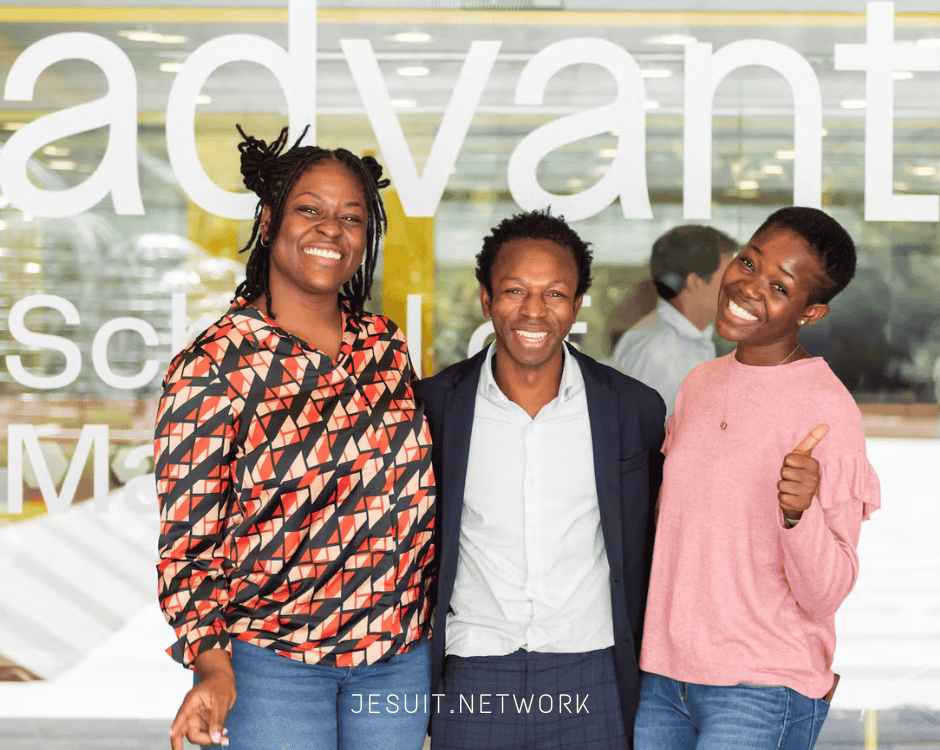This website uses cookies so that we can provide you with the best user experience possible. Cookie information is stored in your browser and performs functions such as recognising you when you return to our website and helping our team to understand which sections of the website you find most interesting and useful.
New volume of Best Practices in Jesuit Higher Education
The International Association of Jesuit Universities, together with the Kircher Network, has launched volume 2.2 of its Best Practices in Jesuit Higher Education project. It is a selection of 12 case studies of pedagogical innovation and Ignatian pedagogy developed by faculty members of our Jesuit universities and colleges around the world.
Some articles are excerpted here, but the full collection of the twelve articles can be consulted and downloaded at this link.
Accompany to being… being oneself. A socio-emotional teacher training initiative with a humanistic and psycho-corporal approach
Jeanny Matilde Cesín Farah | Iberoamerican University, Mexico | AUSJAL
This article presents a socio-emotional training program for teachers called “Accompanying to be… by being oneself.” This initiative has been developed based on the professors’ limitations to practice pedagogical recommendations emphasizing socio-emotional skills in the classroom. The pillars of this initiative are the Ignatian Pedagogy and the Pedagogical Innovation, and it explores what is making professors incapable of taking the theories to practice by observing and accompanying them. Based on her academic experience, the author proposes to promote a Comprehensive Human Development of the university’s members as a new educational paradigm. Advancing social-emotional competencies in the classroom are much needed today; they allow professors and students to innovate and adapt to a constantly changing environment.

Building proximity in the distance
Dr. Manuel Del Moral Dávila | Iberoamerican University, Mexico | AUSJAL
This best practice navigates the experience of changing the “Civil Engineering Seminar,” in the Jesuit University in Mexico City, to a virtual format. This course was designed to help senior students to elaborate on innovation and entrepreneurship projects, using a design methodology based on 16 years of experience in the subject. This initiative was a response to the Spring and Autumn semester during the Covid-19 pandemic, which required the reformulation of how the educational community works given the physical separation of its members.

Dialogremos, a teachers’ evaluation model for improvement
Dr. María de las Mercedes Iglesias Sobre Virginia Isidra Martínez Cruz, Dr. Raul Romero Lara, Dr. Mariana Sánchez Sladaña, Dr. Javier Loredo Enríquez, Dr. Francisco Alvarado GarcÍa | Iberoamerican University, Mexico | AUSJAL
A recognized best practice of educational institutions is the evaluation of their faculty, however, it is necessary to keep them updated for the greater good of the university. In this article, you will find out how the Iberoamericana University in Mexico City improved the professors’ evaluations by building a model based on its institution’s inspiration and specific characteristics, as well as clear, transparent, and constant communication with the community. The author describes the stages of the instrument’s design based on a mixed methodology, using surveys, statistical analysis, and focus groups with professors, students and authorities. The results highlight the innovative and comprehensive features of the evaluation model.
The Society of Jesus’ Universal Apostolic Preferences as an inspirational horizon for the Landivariana humanistic formation
Dr. Juan Pablo Escobar Galo | Rafael Landivar University, Guatemala | AUSJAL
In this inspiring best practice, the author proposes a series of formative activities that can be implemented in Rafael Landívar University to translate the Universal Apostolic Preferences of the Society of Jesus into action. The first action profoundly promotes a discernment of life. The second activity encourages the student community to read the current state of society to respond creatively to the needs of the most vulnerable. The third action invites all to give hope to young university students in an unappealing society. Finally, the fourth action promotes steps to foster a change in the human lifestyle where the construction of a common home is possible. All these proposals seek to prepare better humanist professionals who can positively impact in the transformation to a more dignified and just world for all.

You are invited to read more about these and other good practices in the full document.





